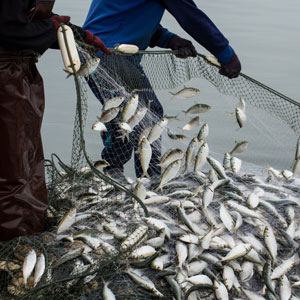Call Now For A Personalized Confidential Consultation!
Hablamos Español
Call Now For A Personalized Confidential Consultation!
Hablamos Español

In this article, you can discover…
In California, commercial fishers must maintain accurate reports for each fishing trip that will be submitted to the Department of Fish and Wildlife. The requirements for these reports can be rather technical, requiring uploads through the internet, which many fishermen are either unaware of or unprepared for.
Fishermen are also required to complete and submit landing receipts to the Department of Fish and Wildlife if they are the first receiver. These receipts are also required to be submitted electronically, creating another common pitfall. Reporting violations are taken very seriously, and the Department of Fish and Wildlife could very well suspend or revoke your privileges for failure to submit in a timely manner.
Among the most common regulatory violations for crab and lobster traps is the failure to provide timely service to traps and pots. The specific time requirements can vary based on the fishery, and there are a number of ways you could be found in violation.
Failure to mark traps with the appropriate license numbers and failure to maintain destructive devices are both common violations. A destructive device is any device that could be found harmful to species of crab and lobster if lost. Failure to maintain these devices can result in a violation.
By regularly servicing and maintaining traps and pots, you can ensure compliance with regulations by keeping equipment properly marked and destructive devices functional. You must also have functional GPS devices and be sure that you are adhering to sizing standards, as possession of undersized lobster and crabs is one of the primary violations alleged by the Department of Fish and Wildlife.
There are actually no limits on the number of fish you can harvest at many commercial fisheries regulated by the Department of Fish and Wildlife. However, certain federally regulated fisheries have a limit to the number of fish you can catch through certain quotas.
If you are harvesting fish in excess of your quota, you can be found in violation of California Fish and Wildlife laws. It is important to stay up to date and ensure you do not exceed your limit, as every federally regulated fishery has a different quota.
It is illegal to fish without a commercial fishing license or permit, so it is crucial to ensure that every deckhand and crewmate carries a valid commercial fishing license. Anyone aboard the vessel who is not participating in the fishery is required to be documented in the logbook as an observer.
The fines for unlicensed or unpermitted fishing can vary depending on the fishery, so you must make sure before commercial fishing season begins that all licenses and registrations are purchased and present on the vessel. Be sure that you are able to present physical copies of all licenses and limited entry permits, as the Department of Fish and Wildlife will take action to ensure compliance.
There has been a recent increase in regulations regarding the electronic reporting of fishing activity, which has caused a number of unexpected violations. It is important to stay up-to-date on current laws by reviewing the annual Fisheries Digest and keeping up with updates from the Department of Fish and Wildlife.
Changes will often be reported in the mid-season through email notifications or direct updates on the Department of Fish and Wildlife’s website. It would be wise for you to stay on top of these updates so that you are aware of any changes in regulations.
Typically, Fish and Wildlife violations are seen as strict liability offenses, meaning that intent is irrelevant in determining whether or not a violation occurred. Since commercial fisheries are highly regulated, the vast majority of Fish and Wildlife violations are strict liability offenses, where a fisher’s intent is irrelevant to determining whether a violation did or did not occur.
Due to the highly regulated nature of commercial fisheries, it’s important that a fisher is diligent in knowing and complying with the law. That includes measuring the species, maintaining and servicing crab or lobster traps, and fishing outside of marine protected areas.
It’s important that you’re up to speed with the current laws because, for any of these violations, there is no valid defense in, “Hey, I didn’t know what I did was wrong,” because you’re presumed to know the law, given the fact that you purchased a commercial fishing license and you work in the industry.
In cases of fish and wildlife violations, intent is rarely a factor in determining culpability. You may be able to mitigate or completely eliminate culpability by maintaining favorable legal conduct.
For example, a fisherman whose crab or lobster traps were located in a restricted area may be able to mitigate or eliminate culpability if they can establish the exact location of the traps by marking each and every trap on a GPS or a plotter. The fisherman could use this information to defend his case.
In another example, if the captain of a party boat is able to prove that a passenger illegally caught and hid fish after being informed of regulations, the captain will be able to avoid culpability for these violations. While the captain and crew are culpable for the conduct of passengers in many cases, the liability can be transferred to a passenger who knowingly violated the law after being informed of the regulations.
For more information on Fish And Game Law In California, an initial consultation is your next best step. Get the information and legal answers you are seeking by calling (415) 782-6002 today.
Copyright©2025, Law Office of E. Michael Linscheid. All Rights Reserved.